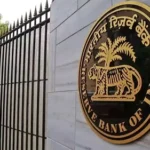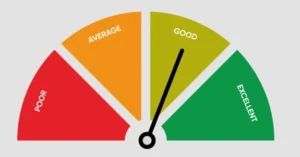The Bombay High Court has issued notices to a prominent bank and the Reserve Bank of India (RBI) in response to a petition filed by a Mumbai resident alleging the fraudulent siphoning of ₹3 crore from his fixed deposits. The petitioner claims that a bank employee illicitly withdrew funds from his fixed deposit accounts, prompting legal action to recover the lost amount and seek accountability.
Allegations of Fraudulent Activity
The petitioner asserts that a bank staff member unauthorizedly accessed his fixed deposit accounts, systematically diverting substantial sums over an extended period. Despite multiple complaints to the bank’s management, the petitioner alleges that no remedial action was taken, leading him to seek judicial intervention.
High Court’s Intervention
In light of the serious allegations, the Bombay High Court has directed the bank and the RBI to respond to the petition. The court’s notice underscores the necessity for financial institutions to uphold stringent internal controls and adhere to regulatory standards to prevent such fraudulent activities.

Bank’s Responsibility and Customer Protection
This incident highlights the critical responsibility of banks to safeguard customer assets. The RBI mandates that banks implement robust security measures to protect depositors’ funds. In cases of internal fraud, banks are obligated to compensate affected customers and take corrective actions against culpable employees.
Legal Precedents in Banking Fraud Cases
The Indian judiciary has consistently emphasized the duty of banks to protect customer interests. In a similar case, the Bombay High Court directed a bank to refund ₹76 lakh to a company that suffered losses due to cyber fraud, reinforcing the principle of zero liability for customers in unauthorized transactions when promptly reported.
RBI’s Role and Regulatory Oversight
The RBI serves as the central regulatory authority overseeing banking operations in India. It issues guidelines to ensure the security and integrity of banking transactions. In response to judicial directives, the RBI has been revising its guidelines on fraud classification to incorporate principles of natural justice, ensuring that borrowers are heard before accounts are classified as fraudulent.
Implications for the Banking Sector
This case underscores the imperative for banks to maintain vigilant oversight and robust internal controls to prevent fraud. It also highlights the importance of regulatory bodies like the RBI in enforcing compliance and protecting customer interests. The outcome of this case could set a significant precedent, influencing how banks address internal fraud and customer grievances in the future.
Conclusion
The Bombay High Court’s notice to the bank and the RBI in this ₹3 crore fixed deposit fraud case reflects the judiciary’s commitment to upholding financial integrity and protecting consumer rights. As the case progresses, it will be closely monitored for its impact on banking practices and regulatory policies in India.



















